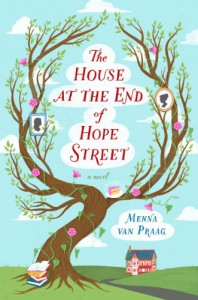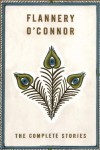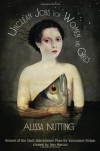Skinny Dipping Into Books
I like the rain. I want to have a spring bookworming rain party full out with wellies—but not those Hunter Boots; absolutely not—, with yummy airy things like puffed pastries, meringues, mini fluffy cheese cakes, mousse dessert, macaroon, biscuits, crepe, and Earl Grey tea, definitely Earl Grey tea. and Tillandsia. We'd have lots of "air plants". Lots! And We'd read, but not anything structured. We'd bring books, trade books, read out-loud, pass books around between sentences and paragraphs. We'd leave with books we hadn't discovered.
I like books like I like my Jazz; euphoric, dangerous, occasionally a bit manic, sorrowful, bleak, raging, mood-incongruent, mournful, unforgivingly ragged, symbolic in a quiet way, warm apple pie for the soul. Give me a Plath style. Yōko Ogawa, M. Roach,
Criteria: Not rated on likability of characters. Not objective. I like Moxie Soda; chances are you don't.
time spent in that before bed reading slot:
5-until blurry eye 4-Later than I intended, but I still kept to my extended, extended reading time 3-I really should have been to bed an hour ago 2-customary 30 minutes. 1-book. side table. eyes closed.
How are common themes handled?
5-With an aesthetic that repurposes everyday themes into something fresh. Think of Hole Celebrity Skin covered by Cat Power 4-there is a comfortable air of familiarly.
3-Deja Vu 2. No deviation from its mates 1. Devastatingly trite, redundant, and stale.
Where would you keep it post-reading?
5-Next to my bed. 4-it's the center piece of my favorite bookshelf 3. On my other favorite bookshelf, but it's a bit dusty over their 2-Great cheap bookends 1-It never made it out of the box marked 'moving'.
Emotional response-
5- Where is my teddy bear? Emotional-hangover 4- If I wasn't so emotionally stunted I'd cry.
3. Did James Cameron co-wrote this? Artfully contrived.
2- calculative emotional manipulation. This was literally written by James Cameron.1- I…feel…..nothing.
Mechanics (plot structure, voice, presentation, word choice, sentence structure, characters, writing style, pacing, and consistency):
5-Chanel 4-Prada 3-J-Crew 2-Gap 1-Old Navy
What a house, what a bore.

Netgalley:
We have a house. It’s a magical house. It is a house that only appears to those who need it. Three characters. Some lovers. Some family members. Can this be my review?
Derivative and contrived, this novel was congealed, uninventive replication of other literature. The themes were not repurposed, and because of this they failed to mend well with the overall story. They circled around the major theme of hope, begging to be further developed, more thoroughly integrated into the story.
The house materializes for those who needing, and those individuals invited by the residents. The house strongly echoes Beauty & the Beast. Objects that come alive and engage the home’s inhabitants are frequent.
It is over-wrought with literary references. Photos of past inhabitants clutter the wall, and keeping with the Beauty & the Beast theme they talk, endlessly and with pause. They communicate in non-distinguishable voices. Replace the film references that plagued and smothered Why We Broke Up and you end up drowning in books that float, conversations founded on literary references, and these talking photographs, and quotes that float on papers from the ceiling, and you guessed it mostly quotes. I just wanted to put my hand over Plath. I wanted to smother Woolfe.
Floating notes of inspiration and guidance rained down from the ceiling—which, by the way, ungulates, reflecting mood—. Hunger Games anyone? All I could imagine was superimposing “You call that a kiss?” on those little notes. I mean, it would have made no sense, but at the very least would have disrupted the monotony of a rather boring and redundant rain of literary quotes and lines from a daily feel good calendar.
There are three primary characters and their entourage.
Peggy is the hostess, the gatekeeper, and the woman who gives it all up to continue her family’s legacy. She regrets this, but who wouldn’t? She’s all intuitive and there is some special power here, but what?
Alba is a younger inhabitant. We are teased about her story, the reason for her visit to the house. There are numerous references and clues that pop up here and there. She teases us, oh does she tease, and by bringing up the half-truths she shares with others, she eventually ties it all together. In the end, though, it’s anti-climatic, devoid of a punch. We are left questioning, ‘really, this is why this young woman became so dislodged from her life?’ I expected far more painful events as causal to her emotional dysregulation.
<HUGE SPOILER HERE>
you must remember that her arrival to the house was simply because of her academic life and her pride were fractured. While family strife entered halfway into the book. So this doesn’t count as contributing to her initial life struggles.
<HUGE SPOILER OVER>.
Alba’s friendship with her library buddy would be such a John Green book, and personally I would have preferred it to this novel.
Carmen is another one. Abuse from a family member and a history domestic violence, have cut her down to a ghost of her former self. In this way her emotional and physical response to stress is far more believable compared to the emotionally fragile Alba. Oh the broken English. I’ll insert one clever Portuguese word here, and her, oh and here looks like a nice place for ‘ola’ or “bom dia”. How clever am I?
Greer emerges onto the story on a faint wind. She was an insignificant supporting role, and really, until the abrupt ending, could of/should have been edited out. An ‘nearly 40’ year-old woman—but not really, she is quite young but maybe it’s because I am 30 and I can say that 40, oh I’m sorry, ‘nearly 40’ isn’t old at all—is all crushed and confused with being SO OLD and not having her shit together. The concept of being old and lost would have had a larger impact if she were actually old. 40-year-old crisis anyone?
A whole bunch of secondary and ‘thirddary’ characters join the party. Some leave indentations on the storyline, while float among the larger themes and drown as quickly as they came. We really didn’t need these—I’m speaking about those lovers. They would have been better served as past experiences impacting the future emotional/social composition of the characters—one bit. One or two, primarily lovers gain a foothold in the main characters lives. The family members were also important. As important catalysts for change I expected deeper, more substantial character development.
This book was so jolly and bubbly. Oh look, a few women gone astray and within 300 or whatever pages find their way. The conclusions are splintered, at one point suggesting disaster but miraculously ending in Happy-go-lucky-ness. Apparently the practical was washed away by overly conscious attempts to reconcile internal chaos with a warm, cozy comforter on a cold night, ending.
In the end, the book ended as expected, without the gritty, jagged, unnerving edge that it deserved. There was so much potential here, but the focus on the house was out of proportion to the time spent developing characters. Rather than a comprehensive study of grief, sorrow, regret, and yes hope, this novel was a contrived anecdotal, under-developed collection of vignettes marred by pacing issues, resulting from a terminal inability to construct cohesive connections between overlaying events; simply put, characters did stuff in separate spaces, and the author tried to jump from one to another, but this missed the mark.
The writing was delicate and well composed, detailed in all the important places, but these elements could not rescue this book.
Best for: lazy summer reads when your library is too far away and your monthly book allowance is depleted.
 1
1





